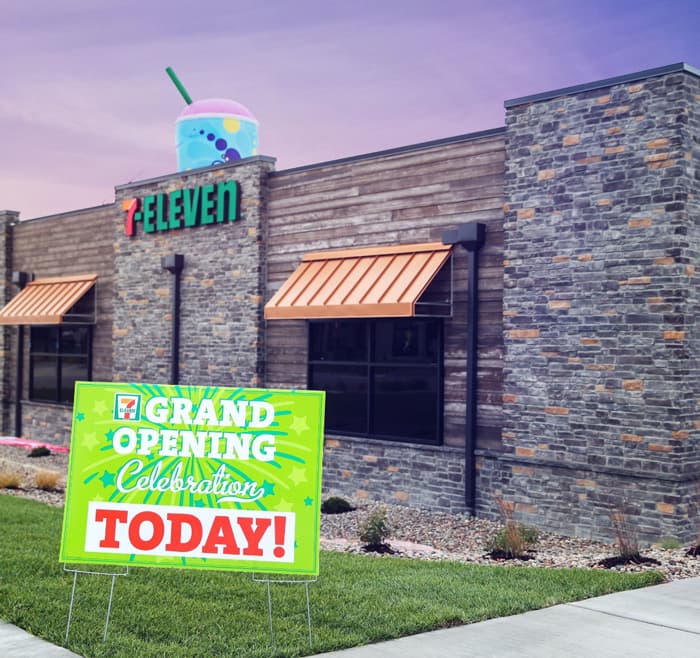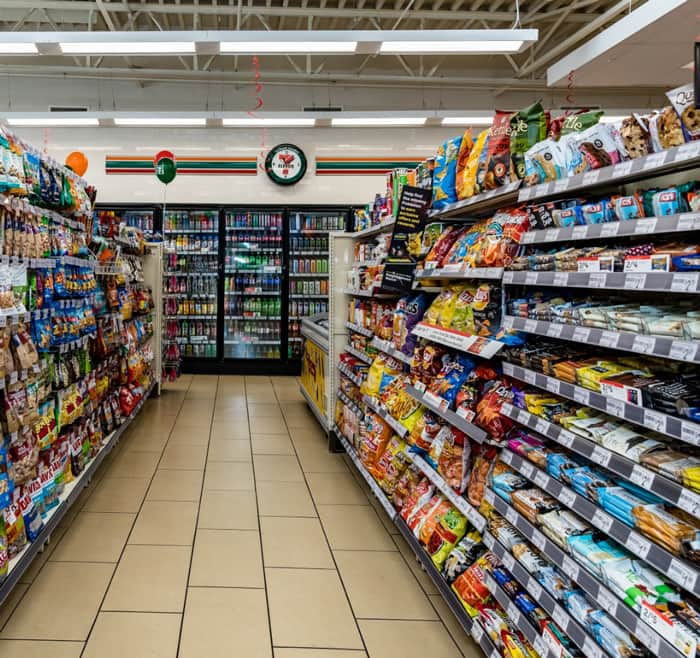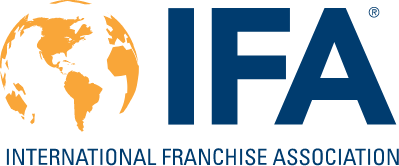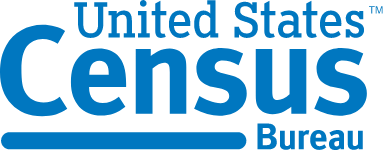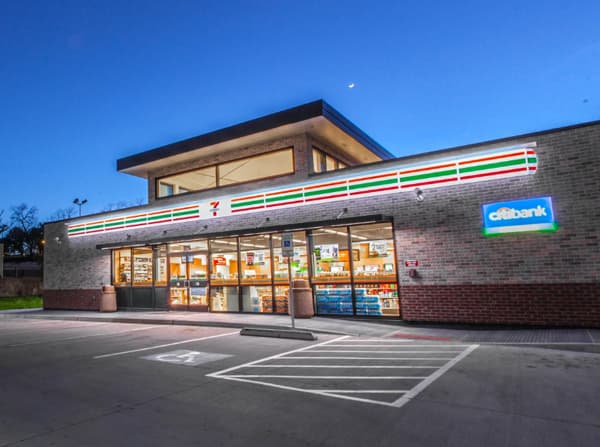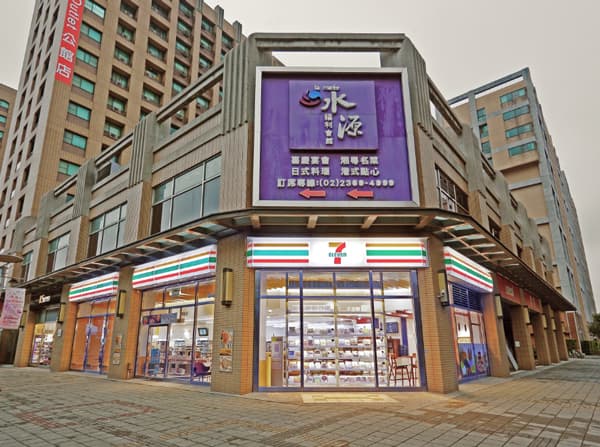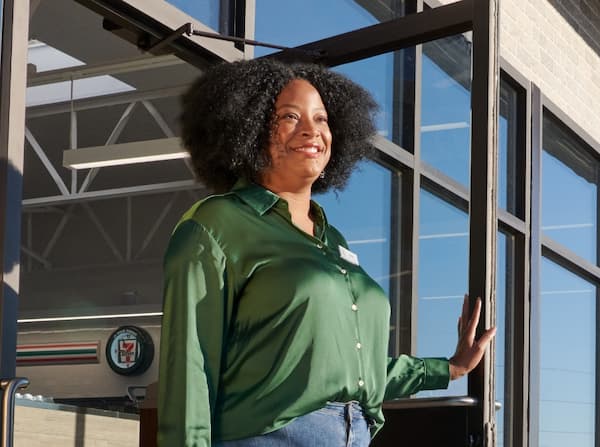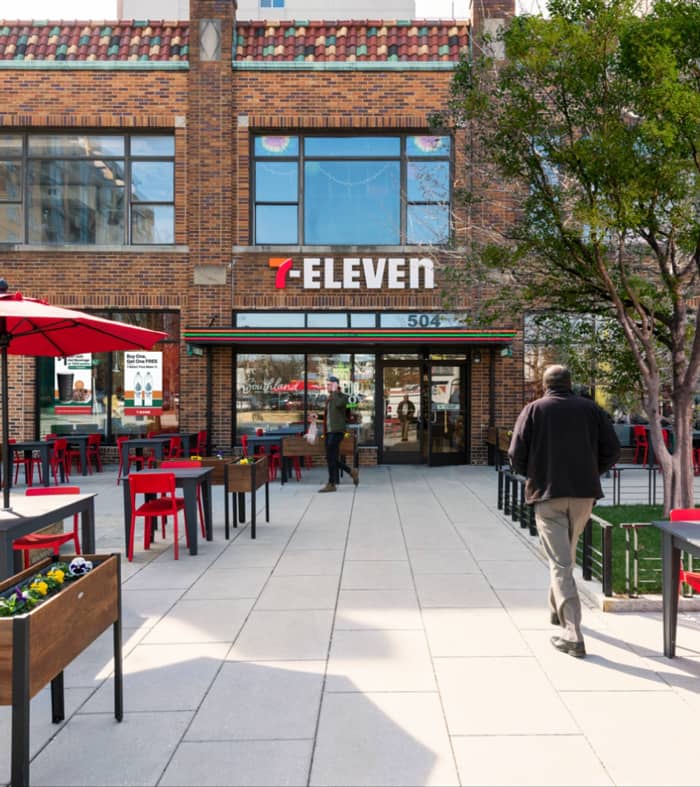Brand: The mark, name, logo and identity of a company or business, and a franchise system’s most valuable asset.
Broker: An outside salesperson. For a fee, a broker will sell a franchise for the franchisor.
Business Conversion Program (BCP): Franchising model where the Franchisee owns the land, building and some equipment. The
7‑Eleven charge is lower for a Business Conversion store than for a Traditional location.
College of Operations Leadership (C.O.O.L.) Training: Current Franchisee training program that is self-paced and could last up to eight weeks.
Corporate (Corp): Store listed on the Stores Available List as a corporately operated site.
Distributorships: The right granted by a manufacturer or wholesaler to a business to sell its products.
Franchise Disclosure Document (FDD): Provides information about the franchisor and franchise agreement, plus a complete description of initial investment costs. The FDD is typically shared after an initial application is completed.
Field Consultant: 7‑Eleven employee whose primary responsibility is to consult with franchise owners regarding their business – growing sales and profits and building an infrastructure to support it.
Franchisee: The person who is given the right from a franchisor to do business under its brand name.
Franchise agreement: The written contract between the franchisor and the Franchisee.
Franchisor: The business that grants the Franchisee the right to do business under the franchisor’s brand.
Franchise Sales Recruiter (FSR): The person who works directly with Franchisees and their store operations during the startup period.
Federal Trade Commission (FTC): The U.S. government agency that regulates franchising.
Goodwill store: A franchise store available to purchase from a current franchise owner.
Gross amount: The term refers to the total amount made as a result of some activity. It can refer to things such as total profit or total sales.
Initial franchise fee: This fee is the initial cost paid by the Franchisee for the right to use a business’ brand name and business model, and receive funding and other potential services provided by the franchisor. It is typically paid after a franchise agreement is signed.
Initial investment: This is the initial cost of getting into business that includes the franchise fee, inventory down payment, cash register fund and costs for supplies, licensing, permits and bonds.
Multi-unit franchise: Franchising multiple locations within a business at one time.
Net amount: The term refers to the amount left over after all deductions are made. Once the net value is attained, nothing else is subtracted.
New Store Open (NSO): Store on the Stores Available List that has been open or operating for less than 12 months.
Royalty fee: A continuing fee paid by the Franchisee for the use of a brand and business model.
Shared profit split: A franchise business model that splits gross profits between the franchisor and the Franchisee.
Single-store franchise: The traditional Franchise model involving only one location.
Store Support Center: Corporate headquarters in Irving, Texas, where all functions supporting a franchise operation are housed – e.g., accounting, payroll, merchandising.
Tried-and-True, Time-Tested Business Model: A franchise that is sold to a Franchisee fully equipped and ready for operation.
Vendor: A supplier of products or services.
Under Construction (UC): Store on the Stores Available List as currently being under construction. This is usually a 7‑Eleven site for a Traditional franchising opportunity.
Zero Franchise Fee (ZFF): Designation for selected Corporate-owned stores on the Stores Available List that require no initial Franchise Fee.



